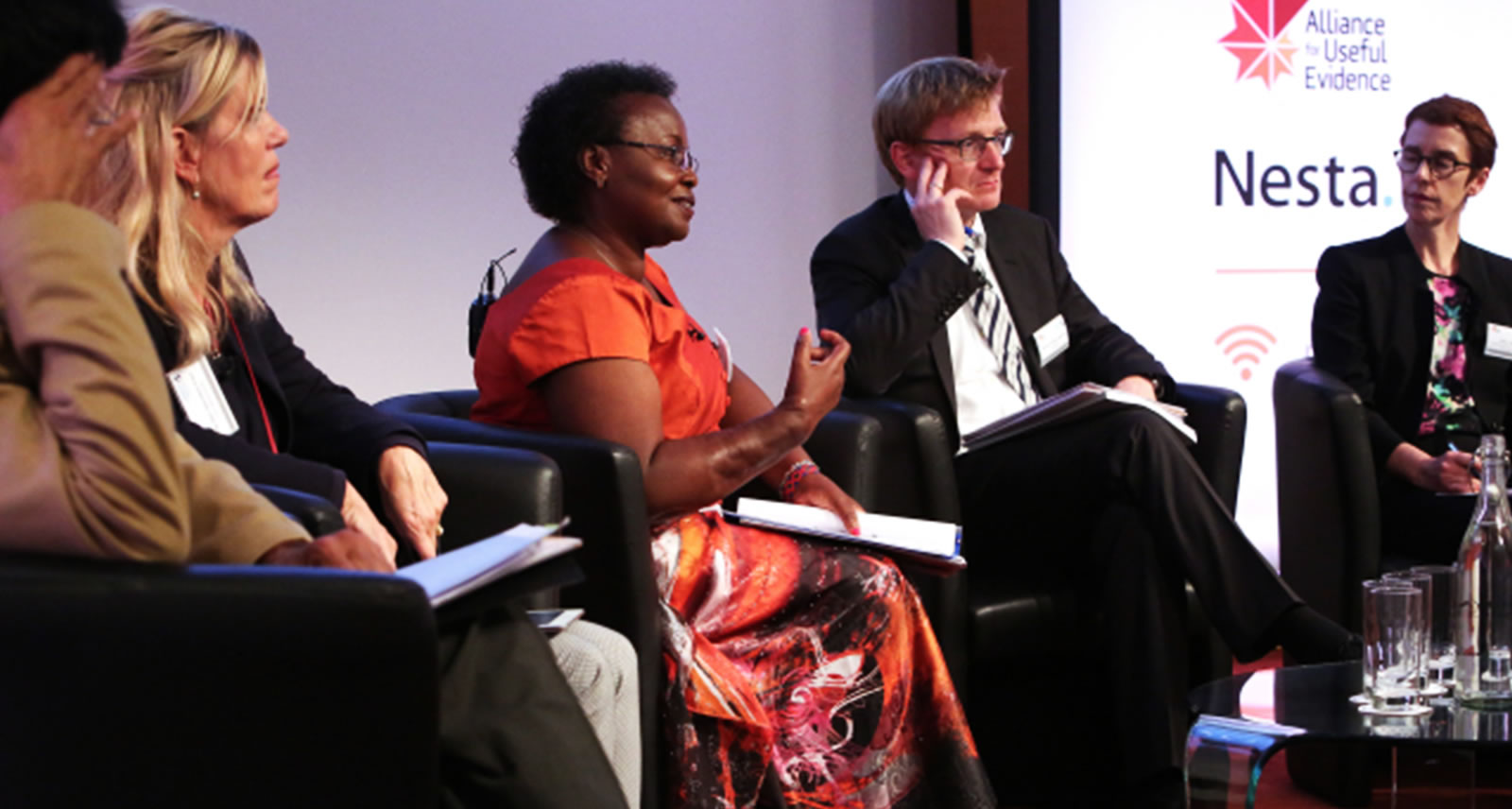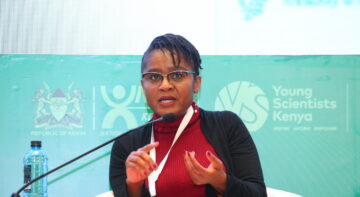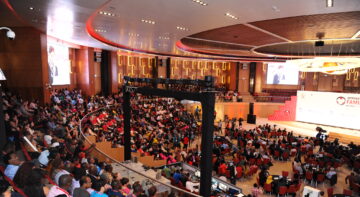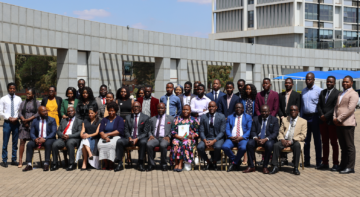Blogs

The legislative authority of the Republic of Kenya is derived from the people and is vested and exercised by the Parliament at the national level and county assemblies at subnational levels in accordance with the country’s Constitution. For Members of Parliament (MPs) to undertake the functions of Parliament of representation, oversight, legislation, and appropriation of resources they need robust evidence (research evidence and routine data), and inputs from their constituents.
In Kenya, the evidence-informed approach to decision-making has gained pace over the last decade, more so following the promulgation of the new Constitution in 2010. This can be attributed to the following reasons: First is the adoption of the presidential system of governance which resulted in the enhanced separation of powers between the Executive and the Legislature. This meant enhanced roles in legislation, oversight and the budget-making processes. Secondly, the devolved architecture that resulted in two levels of government, national and county-level, meant that each of the 47 Counties has unique, characteristics, opportunities, challenges and hence requires context-specific interventions. Parliament, and particularly the Senate, is expected to engage with devolved units including ensuring they are adequately informed to ensure the interdependence, consultation, and cooperation as envisioned in Article 6(2) of the Constitution, enhances development. Article 6(2) states, « »¦the governments at the national and county levels are distinct and inter-dependent and shall conduct their mutual relations on the basis of consultation and cooperation. »
Thirdly, the Constitution calls for the need for public involvement in decision-making with Article 118(1) (b) compelling Parliament to engage the public and ensure such engagements are entrenched in decision-making processes. At institutional level, the National Assembly Speaker, Hon. Justin Muturi’s « Communication from the Chair » on 1 March 2015 instructed that the research and policy analysts attend House proceedings to adequately provide information and evidence to Members during and after debates was an acknowledgment of the place of evidence in decision-making in Kenya’s Parliament.
Professional offices facilitating evidence use
The Kenya Parliament boasts of at least three key professional offices and departments. These are the Parliamentary Research Services (PRS), the Parliamentary Budget Office (PBO) and the Legal office (National Assembly and Senate). The PRS was established in 2003 as a specialised, non-partisan and professional department to provide independent and objective research evidence to individual MPs, House Committees Constitutional offices, Presiding officers and other Parliamentary staff. The range and scope of research services offered by PRS are designed to facilitate Parliamentary discourse by linking research evidence and policy analysis to the decision-making and legislative agenda of Parliament. The evidence provided tends to be fast-paced and driven by short to medium-term work of Parliament. The interaction between Parliamentary Committees and the PRS is characterised by a two-way demand and supply of evidence. This information provided to committees by the PRS’ research analysts is tailored to the specific needs of the Committee as part of the wider range of services to support the Committee’s work. The PRS also proactively provides MPs with peer-reviewed evidence briefs on emerging issues, taking into consideration the policy context.
On the other hand is the Parliamentary Budget Office (PBO), established in 2007 to support MPs in scrutinising the national budget and key performance indicators of the country’s economy. The budget is a tool with which the government of the day implements its manifesto – the national development agenda. As such, the annual budget estimates should reflect the priorities in the manifesto, and adhere to agreed expenditures and approved ceilings.
With regards to the country’s economy, the PBO assesses the micro fiscal framework; economic outlook, inflation, interest rates, private sector performance, exchange rates, and how these variables are likely to impact the implementation of the budget framework. The indicators that the PBO assesses are: limits of fiscal policy, alignment to Medium Term Plans (MTP) and the current government’s Big Four Agenda (); Effectiveness of the budget framework, that is, does it meet the national development needs in a cost-effective way; and justification of the allocations « the PBO facilitates the House Budget Committee to get information from the various ministries to justify their previous and current budget allocations.
The Legal Department, also established in 2007, provides legal services to MPs in both the National Assembly and Senate. It also undertakes legal scrutiny of proposed bills as well as their legal implications, and provides advice to committees and MPs. Besides these professional offices, Parliament also has a library to support access to information by staff and MPs. It also has a fully-fledged IT department to ensure Internet connectivity and other IT support to MPs and staff.
Caucus on evidence-informed oversight and decision-making
The need to have MPs actively involved in championing evidence use in committees and in the house necessitated the formation of the Parliamentary Caucus on Evidence-Informed Decision-making (PCEIDM), dubbed the « the Evidence Caucus ». This is a classic example of MPs-staff collaboration and a product of peer learning by two MP champions of evidence, the Hon. Dr. Susan Musyoka (former MP for Machakos County) and Sen. Dr. Wilfred Machage (former Senator for Migori County). The Evidence Caucus was established in 2015 as a non-partisan, informal committee of both the National Assembly and Senate whose objective is to increase evidence uptake among Parliamentarians. It exists to advocate and encourage Parliamentarians to eliminate debate and decision-making based on politics or personal opinions and instead, embrace evidence-informed decision-making. The Evidence Caucus works with the PRS and the Clerks Chamber to undertake activities that enhance evidence use by Parliamentarians across the political divide and in both Houses of Parliament – the National Assembly and Senate.
Within two and half years of its existence, the Evidence Caucus members have lobbied their colleagues in Parliament to participate in issue-based policy dialogues in collaboration with think tanks such as the African Institute for Development Policy (AFIDEP). During these conversations, experts share the existing evidence on the issue and participants drawn from within and outside Parliament, discuss the policy implications and options and where possible, how these can inform legislation and oversight. For instance, in 2016, the Evidence Caucus in collaboration with the National Assembly Committee on Health and AFIDEP held a policy dialogue on Universal Health Coverage (UHC) where the discussions informed the Health Bill 2017 that was before the Health Committee at the time. As curtains closed on the 11th Parliament, the Caucus observed that uptake of research evidence had increased two-fold with support by Parliament leadership, with the Speakers and the Clerks of both the National Assembly and the Senate being identified as the leading reason for its success.
Existing bottlenecks
The process of entrenching a culture evidence-use among Parliamentarians and stimulating uptake has not been without its fair share of challenges. In 2017, the Parliamentary Service Commission (PSC) acknowledged that public policymaking is a « political process influenced by many actors, factors and different kinds of priorities. » As such, the most notable challenge is the extent to which political correctness for the sake of political expediency plays out at the expense of evidence. Also, although nearly half of the PRS experts have been trained in critical skills (including accessing, appraising, synthesising and sharing evidence), half of the team still has weak skills in these areas and this compromises the quality of evidence they provide to committees. In addition, there is a lack of meaningful linkages between Parliament and experts working in academia, government research institutes, and think tanks, which limits the provision of technical advice to committees by these experts. Finally, despite the existing provision on the right to access to information held by the State as outlined in Article 35(1) of the Constitution, the existing bureaucracies within the Executive occasionally slow down access and uptake of critical information and evidence by Parliament, particularly on the extent of implementation of government policy. This impedes decision-making processes of Parliament on oversight and legislation.
In the 12th Parliament, we are focusing on reviving and sustaining the momentum of the Evidence Caucus. The Caucus membership has been reconstituted and we are working with the new Caucus leadership to plan activities that will champion evidence use in committees and the house, as well as those that will meet the evidence needs of committees and MPs. We are also focused on activities that continually strengthen the capacity of research analysts to enhance the quality, accessibility, and timeliness of evidence the provide to parliamentarians.
Marale Sande is a Senior Research and Policy Analyst, Parliament of Kenya. maralesande@yahoo.com
This blog is published in our latest issue of African Development Perspectives. Read more stories here.
Related Posts





